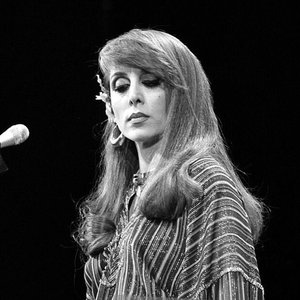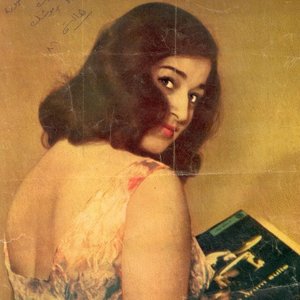Biography
-
Born
12 September 1957 (age 66)
-
Born In
Mosul, Nīnawá, Iraq
Kathem Al Saher (Arabic: كاظم الساهر) or Kadim Al Sahir or Kazem Al Saher, (born September 12, 1957), an Iraqi singer. He was born in Samarra to a mother from Najaf and a father from Baghdad.
Kathem has established himself as one of the most successful singers in the Arab World, having sold more than 30 million albums since the start of his career. Ranging from big romantic ballads to more political work, from pop to Arab classical, he has covered the spectrum of music with the kind of success not seen since the heyday of Umm Kalthum. He is the son of a palace worker and has nine siblings.
Biography
Kathem Al Saher is an Iraqi singer. He was born in Nainawa/Mosul, 1961, to a mother from Najaf and a father from Baghdad. He grew up and spent a large part of his life in Alhurrya city in Baghdad.
Early life
His interest in music grew as he listened to songs via the radio that offered him the chance to become familiar with the works of composers such as Mohammed Abdel Wahab by hearing them. When he was ten, , he began writing songs. He switched to the oud, a much more common instrument, and was accepted into the Baghdad Music Academy at the age of twenty-one. Although keen to break through in the music business with his songs and voice, he found himself rebuffed by all the producers he approached, who would only let him sing their own material. Instead, he used the back door to gain entry to the industry.
Professional career
1980–1985: Rise to fame
One of his first videos was made in collaboration with one of his friends that happened to be a television director. The song in question was Ladghat El Hayya (The Snake Bite), which was broadcasted on Iraqi television in 1987, one year before the end of the Iraq-Iran war. The song was the source of a major controversy due to particular sensitivities that were common during that era. Officials in the Iraqi television asked him to either change the lyrics or have it banned. His refusal to change the lyrics and it is consequent ban only helped to increase the popularity of the song. He began giving concerts all over the Persian Gulf and recording labels in Kuwait.
A year later, he had a hit with Obart Al Shat (I crossed the river). Some of his professors at the Academy denounced it as sha'bi (pop) music, anathema to those who taught classical music. But protesting was pointless. Al-Saher had managed to circumvent the system and had become a star on his own terms – he even undertook his first U.S. tour in 1989. Having conquered pop, Al-Saher turned around and established himself in the Arabic classical world with La Ya Sadiki (No, My Friend), a magnum opus that lasted almost an hour and found him using maqams (scales) that hadn't been used in Iraqi music in several decades, revitalizing a tradition.
The Gulf War and its immediate aftermath kept him pinned in Iraq, but in 1993 he transferred his base of operations to Lebanon, working with the poet Nizar Qabbani, who wrote lyrics to his music, before settling permanently in Cairo. Al-Saher continued to release albums and tour, having become the biggest name in Middle Eastern music, one whose ballads grew bigger and more romantic, but who would also write classically influenced works, even when they might hurt his popularity.
By 1998 he was lauded as an artist, not just a pop star. That prestige brought him wider fame and a growing international reputation that won him a UNICEF award for his song "Tathakkar," which he performed in the U.S. for Congress and the United Nations – one of the first real post-Gulf War cultural exchanges. The following year, he recorded a tribute to the Pope with the Italian Symphony Orchestra.
While still a fan of large orchestras, whose sweep helps define his music, he's remained open to technological innovation, even going so far as to allow a remix (by fusionists Transglobal Underground) of his song La Titnahad, taken from his 2000 release El Hob El Moustahil (The Impossible Love), the first of his albums to be given an official American release. To coincide with it, he performed on the Mondo Melodia tour, which crossed the U.S.
Kathem has released a song entitled "The War is over" (Entahat al harab) with Sarah Brightman.
Kathem Al Saher released his new album entitled "Yawmyat Rajoul Mahzoom" on March, 2007.
Artist descriptions on Last.fm are editable by everyone. Feel free to contribute!
All user-contributed text on this page is available under the Creative Commons Attribution-ShareAlike License; additional terms may apply.












